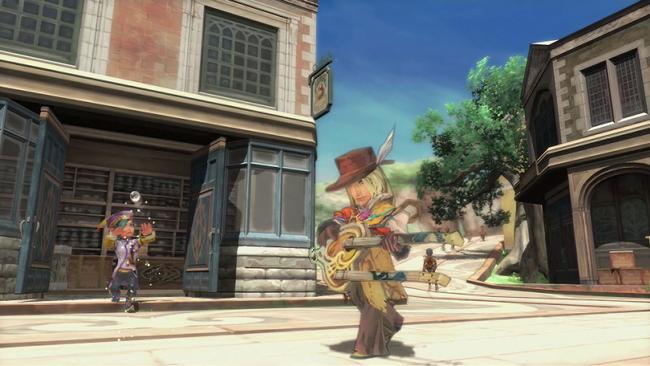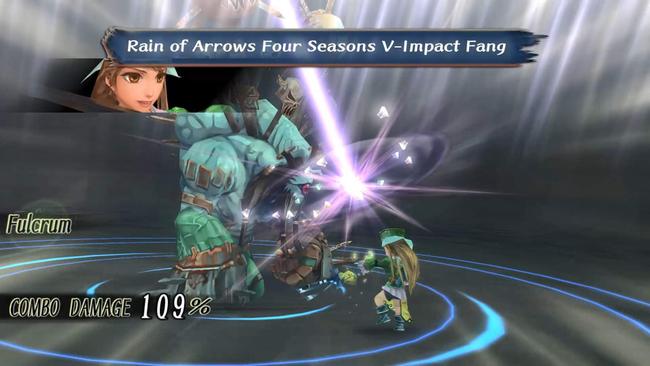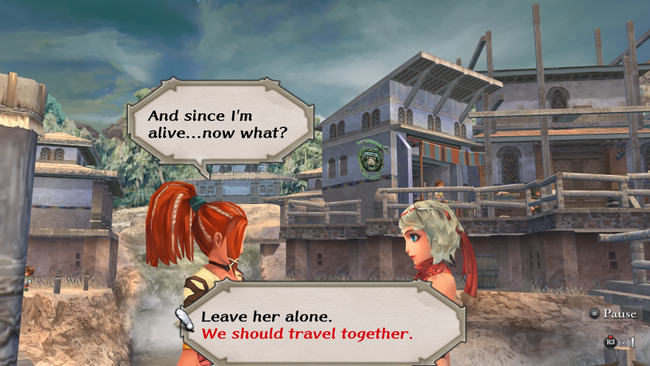
Romancing SaGa: Minstrel Song Remastered Review
This review was written for the December 2022 PC release of Romancing SaGa: Minstrel Song Remastered
I've written at length several times about Square Enix's SaGa franchise, and how it offers a type of RPG experience that no other series can match. Last June I stated that "Romancing SaGa: Minstrel Song is weird as heck, and it rules" and went at length attempting to define the SaGa experience and the series' focus on player discovery above all else.
I'll try not to repeat myself here, not too much. If you've been reading RPG Site for a while, you may have noticed that we have generally been pretty SaGa-friendly. SaGa Scarlet Grace Ambitions won our RPG Of The Year in 2019, beating contenders such as Disco Elysium, Fire Emblem: Three Houses, and Monster Hunter World: Iceborne. SaGa isn't for everyone, but if it clicks, it may *really* click.
Late last year, Square Enix released Romancing SaGa: Minstrel Song Remastered among the dozen other games the publisher released in the quarter. Not unexpectedly, it got somewhat lost by the wayside going up against other Square Enix titles like Crisis Core: Final Fantasy VII Reunion and Tactics Ogre Reborn. But I wanted to give Minstrel Song its due, because it deserves it.
To me, Romancing SaGa Minstrel Song is one of the best RPGs ever made.

Most Japanese RPGs are linear affairs with a pre-determined narrative that plays out at a regular pace. To be clear, I have absolutely no problem with this sort of structure! But if you go into a SaGa title assuming a similar format, you'll probably inevitably be disappointed, because it is decidedly not that.
Again, I don't want to repeat what I've already stated about Minstrel Song, but I'll restate how very few other games exhibit the same sort of framework and philosophy that SaGa does, which makes describing these games a challenge. Briefly, Romancing SaGa Minstrel Song excels at simulating role-playing elements - both in and out of combat - inside a framework that still works as a video game. It's one of the best games in the series, and the Remaster adds several quality-of-life components to make it more approachable.
The basic structure is this. You can pick one of eight characters to start your adventure, and each character's storyline opens uniquely in different corners of the world of Mardias. After a short scripted sequence, the world opens up and you are essentially left to your own devices, and it's completely up to you to decide where to go. There is no main questline. There is no story path to follow. There are no optional dungeons or sidequests - not really - because technically everything in the game is optional. Do whatever you want; go wherever you want.
Where's the storyline? Talk to people. Visit the places they talk about. Discover various events & sub-stories, and recruit new characters to your party. Your journey will eventually come into focus as you face off against an evil god, but how you get there is largely up to you.
One of Square Enix's oft-used taglines for SaGa titles is "Create your own SaGa!" And it's an apt phrase to use, because no two players will tackle the game in precisely the same way. The open-ended nature, and the sheer number of different paths the player can take, all make for a captivating experience driven by one's sense of wanderlust. In a way, the end result feels like a spontaneous, personalized adventure that you might find in a table-top RPG campaign, except it's in the reminiscent framework of a Japanese console RPG. Series creator Akitoshi Kawazu has repeatedly stated how he's played Dungeon & Dragons and tries to incorporate various table-top elements into the games he's made, and the results of that are evident upon inspection.
The entire game - and the series at large - is structured with the prevailing philosophy of 'player discovery' in mind, and that includes all the mechanics to support your curiosity. Even typical components we take for granted in other RPGs are tailored in a unique way fitting this open-ended philosophy, such as how you gain new equipment, or when new characters join your party. Unlike most JRPGs, in Romancing SaGa, there isn't really a linear progression for the quality of gear you have access to, nor the characters available to join you. Depending on which direction you head, which people you talk to, and which events you stumble across, you might end up finding high-level equipment and powerful party members early in your adventure.
In Minstrel Song, and SaGa games in general, the gratification of engineering a powerful party from the characters of your choosing is unparalleled. There's a significant amount of flexibility in how you approach the game, with plentiful challenges to find. When you start to understand how all the underlying systems work together, and thus how to bend it all to your favor, you can begin to construct a team able to take on anything the game throws at you. It's incredibly elating when you realize how to take down a difficult boss that you once felt hopeless against.
Or, to borrow the phrasing of a friend, Minstrel Song "makes you feel super fucking badass in entirely earned ways".

The quality of life changes made to the Remaster are all greatly appreciated. Many, many adjustments have been made from the game's original release on PlayStation 2, and they are so numerous I'll probably inadvertently neglect to mention of few of them here.
Fleeing from battle is much less harsh of a penalty than it used to be. A turbo mode makes battle and exploration significantly more snappy. The UI has been overhauled throughout, making it easier to see key information as well as various shop details. There is now a marker for your current Event Rank (something I specifically hoped to see). New Game Plus carryover is greatly expanded, making repeat playthrough make less of a burden or timesink, if desired. Some notoriously hidden quests have been made easier to activate. There's also a 999-item storage you can access from any menu, which makes item management much easier.
These changes, among others, easily make this new version the definitive version of Minstrel Song.
I only really have one major criticism of the remaster, and it comes in the form which new content that has been added to it. Without getting into the details, because they get a bit messy, there are essentially three new components in the remaster.
The first is a set of four new characters that can join your team. This addition is a simple one; Marina, Flammar, Monica, and Schiele will now join you once you complete their quest, which is otherwise unchanged from the original release. This new content I have no issue with, as it simply gives you four more characters to test out in your battle party.
The second is a new set of events featuring Aldora, an existing character who had an involved storyline in the original game. She is also able to join you, but due to how her storyline works, her new content is relegated to a third playthrough at the earliest, and that's assuming the player executes events in the first two playthroughs properly. The events themselves are interesting enough, adding just a little bit of additional flair and world-building - but it being tucked away so deeply in the game means it's exceedingly difficult to access.

The third is the addition of new boss fights that are even more difficult than the optional super boss of the original game. Due to how New Game + bonuses have been implemented into the remaster, said superboss isn't quite as hard as he was in the PS2 version, but he still is incredibly difficult to beat, requiring considerable preparation to even stand a chance. If you finally are able to beat him, *then* you'll get access to a slew of 13 new superbosses that you can face, if you want.
But what that means is that much of the new content added to Minstrel Song Remastered will only ever be seen by the most hardcore of players, whether it's overly-tailored playthroughs to access the new Aldora content, or adding challenging boss fights past an incredibly difficult superboss.
To me, it mostly feels like a missed opportunity. I would have loved to see more new events added in a casual first-run playthrough that any player might run into by happenstance in typical gameplay. But as it is, it's likely that most new content added to the remaster you'll never see, unless you *really* get sucked in. It's a minor nitpick in the end, but I can't help but feel a slightly tinge of disappointment in how this was implemented.
Romancing SaGa is not for everyone, and nor should it be. But if you want to try something new and different from typical JRPGs, give it a shot, and maybe you'll end up addicted to it.